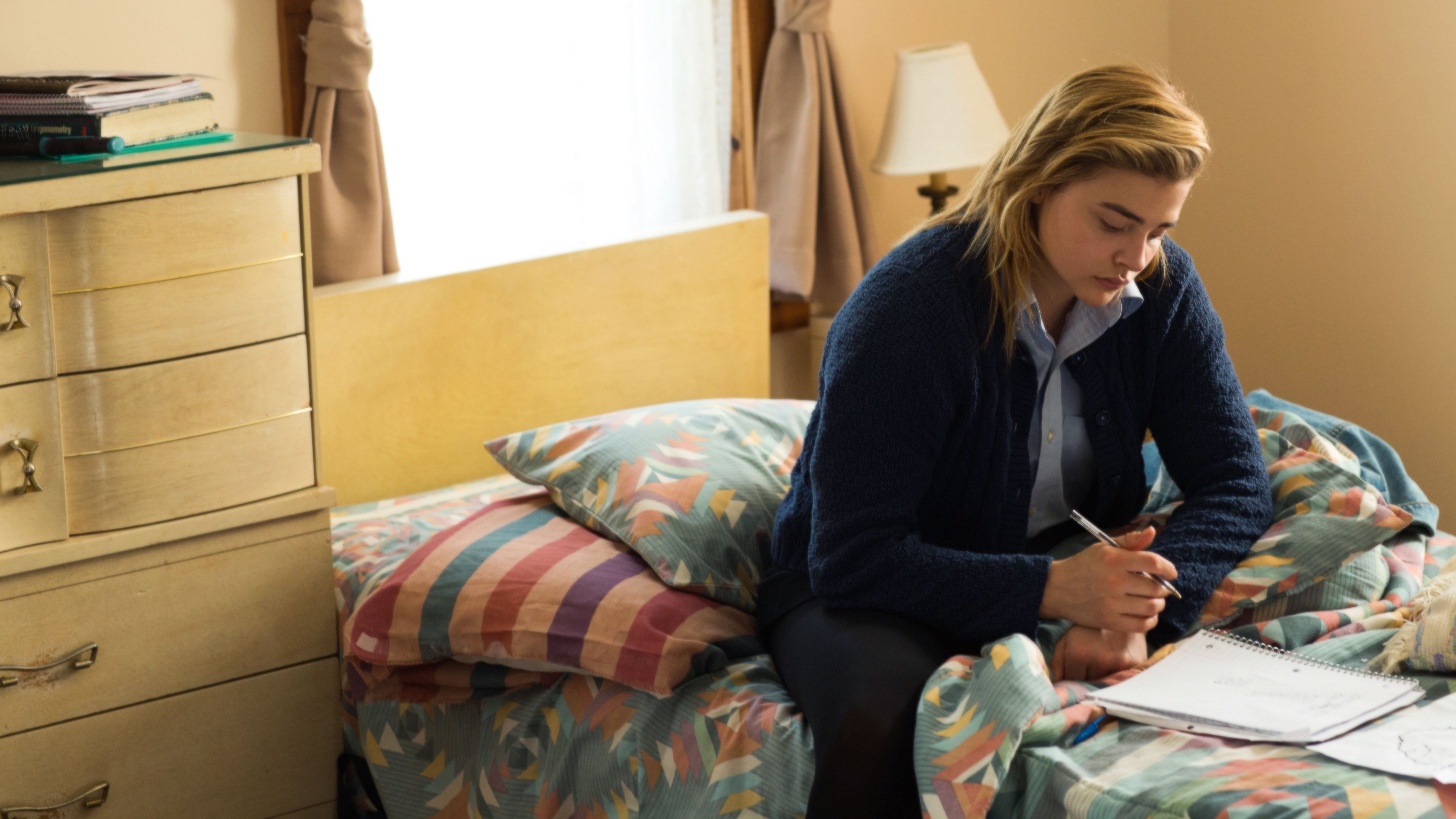
As a young lesbian viewer, I was unashamedly biased in my anticipation of this film. I had my reservations, mostly regarding the tragic endings I’ve come to be so used to when it comes to lesbian films, and the gratuitous fascination with ‘forbidden’ desire. However, my worries were eclipsed by my excitement to see a lesbian film about and more accessible to younger audiences, tackling a challenging subject which is still a frightening reality for many young LGBT people. Impressively, Akhavan’s film also manages not to falter under comparison to the likes of But I’m a Cheerleader (1999), an essential lesbian film of the 90s with an almost identical premise, but a decidedly more screwball delivery. Instead, The Miseducation of Cameron Post is remarkably self-assured in its direction, with a sharply funny script and an abundance of affection for each of its characters.
In 1993, 16-year-old Cameron Post (Chloe Grace Moretz) is caught having sex with her best friend Coley in the backseat of a car at the school prom, and is sent by her well-meaning aunt to God’s Promise, a kitschy sleepaway camp in rural Montana specialising in a sugar-coated breed of gay conversion therapy. The program is run by the steely Dr Lydia Marsh (Jennifer Ehle) and Rev. Rick (John Gallagher Jr.), an ‘ex-gay’ success story of the therapy he now preaches. Cameron barely knows how to comprehend her new feelings before she is ordered to discover the cause of her same-sex attraction through group therapy sessions and patronising homework exercises. She finds safety and community in her friendship with fellow campers Jane Fonda (Sasha Lane), raised in a hippy commune, and Adam (Forrest Goodluck), a Native two-spirit boy. The three navigate their circumstances with a perfect balance of snarky teenage humour and honest sincerity that never diminishes the seriousness of the subject matter nor renders them pitiful.
Though much of it is in the past, the narrative doesn’t shy away from carefully exploring the development of Cameron and Coley’s relationship. Flashbacks detail the growing tension between the bible study friends, and the subsequent grappling of their feelings for each other. Their secretive makeout sessions are intimate and hesitant; cinematographer Ashley Connor captures them in a way that emphasises their emotional gravity without being exploitative of the young women on camera. It felt very important to me as a queer viewer that the film didn’t simply cut away from these moments – the longevity of the shots captures Cameron’s newfound emotions and urges in all of their messiness and anxiousness. The dizzying experience of kissing a girl for the first time is one that holds so much weight in this story, as both the doing and undoing of Cameron’s character, depending on who you ask.

Everything about Cameron’s tumultuous coming-of-age feels entirely real, aided by a conscientious, understated performance by Chloe Grace Moretz. Moretz’s involvement with the project also seems particularly significant as a young actress popular with mainstream teen audiences, who will hopefully be drawn to the film as a result. It is also pleasing to see the use of actual young actors in these roles, who feel believable in both their naiveté and wilfulness. Sasha Lane delivers an expectedly effortless performance; she doesn’t even have to try to assert herself as the most confident of the group, and her blunt attitude provides a necessarily sarcastic perspective on their nightmarish circumstances. Forrest Goodluck, the youngest and more aloof of the three, still manages to claim some of the funniest moments of dialogue with a sly perceptiveness. The portrayal of the trio’s friendship shows an affirming sense of solidarity that balms the often incredibly isolating experience of growing up queer.
Whilst The Miseducation of Cameron Post doesn’t necessarily try to solve all of the problems it poses, what it does do is provide a positive outlook for our protagonists; a journey into a future that is uncertain, but wholly theirs. And, as I came to realise, a more emphatically optimistic ending might have been unfounded, as we well know – the battle to end such conversion therapy in all fifty states is far from over. I have almost nothing in common with Cameron – or any of the kids in the film – in my upbringing and influences, and yet watching this film still felt like a deeply personal experience. In many ways, it felt as though Akhavan had seen into my own teenaged mind, and visualised thoughts and feelings that I felt only I had experienced. It was both comforting but also made me feel sick to my stomach to think of the internal struggles that I, and so many others, still face. But, as Jane says in one of her sudden moments of plaintive wisdom: “Maybe you’re supposed to feel disgusted with yourself when you’re a teenager.”
It’s a film I wish I could have had when I was 16, and one that I’m so grateful that generations of queer teens after me will have to turn to in a time of frustration and anxiety, but also hope and exhilarating self-discovery.
by Megan Wilson
Megan is a northerner currently studying film in London. She likes cats, old musicals, and films about lesbians who don’t die. Her favourite films include Carol, Moonlight, Singin’ in the Rain, and Matilda. Twitter: @bertmacklln


Leave a comment